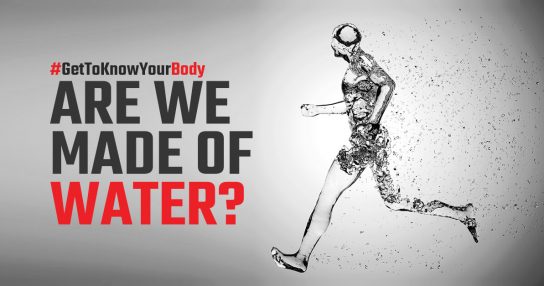Your body depends on water to survive and it is essential to good health. Every cell, tissue and organ in your body needs water to function properly. For example: your body uses water to maintain its temperature, remove waste and oil your joints.
8X8 RULE OF WATER
The amount of water commonly recommended is 8 servings of 8 ounces of water each day, which amounts to about 2 liters.
Other drinks and food can help you stay hydrated as well. Fruit and vegetable juices, milk and herbal teas can be added to the amount of water you drink. However, some may add extra calories to your diet, via sugar.
If staying hydrated is difficult for you, here are some tips that can help:
Always keep a bottle of water with you during the day. To reduce your costs and protect your environment, carry a recyclable water bottle.
If you don’t like the taste of plain water, add a slice of lemon, lime or cucumber to your drink.
Drink water before, during, and after a workout.
When you’re feeling hungry, drink water. Thirst is often mixed-up with hunger.
If you have trouble remembering to drink water, drink on a schedule. For example: drink water when you wake up, at breakfast, at dinner and when you go to bed.
Signs of dehydration is important:
Little or no urine
Urine that is darker than usual
Dry mouth
Sleepiness or fatigue
Extreme thirst
Headache
Confusion
Dizziness or lightheadedness
No tears when crying
Recommendations of water consumption for endurance and strength athletes really depend upon individual metabolism; sweat rate, climate zone and level of exertion.
Recommendation for both – weight training and endurance athletes (assuming they are fully hydrated before training) – is to drink 200-300 ml (7 to 10 oz.) of fluid every 10 to 20 minutes. If athletes are competing in extreme climates or altitudes these amounts should be higher.









